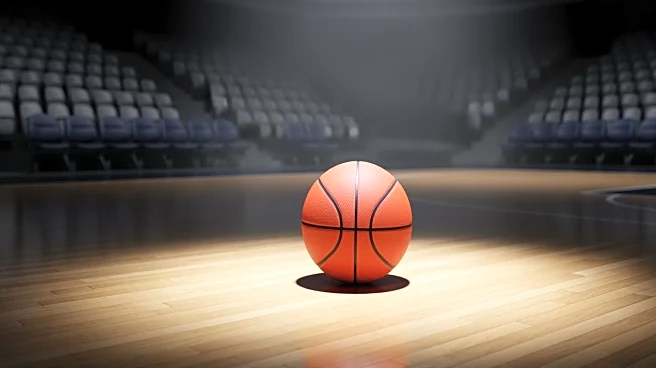What's Happening?
Malcolm Brogdon, a veteran point guard, has announced his retirement from the NBA just one week before the New York Knicks are set to begin their season. Brogdon, who was competing for a final roster spot
with the Knicks, cited the physical and mental toll of his nine-year career as reasons for his decision. His retirement leaves the Knicks without a backup point guard behind Jalen Brunson, creating a significant gap in their roster. Brogdon, who was the NBA's Sixth Man of the Year during the 2022-23 season, had signed a non-guaranteed deal with the Knicks last month. Despite his injury-prone history, he was expected to play a key role in the team's rotation.
Why It's Important?
Brogdon's sudden retirement is a significant development for the New York Knicks, as it affects their roster depth and strategy for the upcoming season. The team now faces a challenge in finding a suitable replacement for Brogdon, who was expected to provide valuable minutes as a backup point guard. This decision could impact the Knicks' performance and competitiveness in the Eastern Conference. Additionally, Brogdon's retirement highlights the physical demands and pressures faced by professional athletes, offering insight into the challenges of maintaining a long-term career in the NBA.
What's Next?
The Knicks will need to reassess their roster strategy and explore options to fill the void left by Brogdon's retirement. This may involve promoting younger players or seeking trades to acquire a new backup point guard. The team has been considering trading players to free up space under the salary cap, which could now become a priority. The Knicks' management will need to act swiftly to ensure the team is prepared for the season opener and remains competitive throughout the season.
Beyond the Headlines
Brogdon's retirement underscores the broader issue of athlete welfare and the impact of long-term physical strain. It raises questions about how teams and leagues can better support players in managing their health and career longevity. This development may prompt discussions within the NBA about player health policies and the importance of mental health support for athletes.











